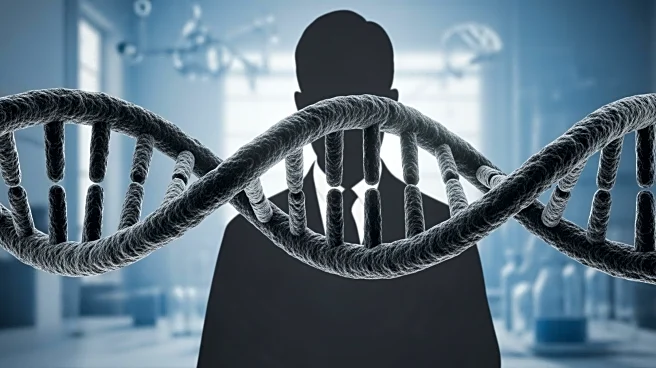What's Happening?
James Watson, the American biologist who co-discovered the structure of DNA, has passed away at the age of 97. Watson, alongside his British research partner Francis Crick, announced their groundbreaking
discovery of the DNA double-helix structure in 1953, a finding that revolutionized the field of genetics and earned them the Nobel Prize for Medicine in 1962. Watson's career was marked by significant scientific achievements, but also by controversial statements on race, intelligence, and genetics, which led to public criticism and professional repercussions. Despite these controversies, Watson's contributions to science, particularly in understanding genetic inheritance, remain pivotal.
Why It's Important?
The discovery of the DNA double-helix structure by Watson and Crick is considered one of the most important scientific achievements of the 20th century. It laid the foundation for modern genetics, enabling advancements in medical research, biotechnology, and understanding hereditary diseases. Watson's work has had a lasting impact on scientific research and public policy, influencing debates on genetic engineering, cloning, and bioethics. However, his controversial views have sparked discussions on the ethical responsibilities of scientists and the impact of personal beliefs on scientific discourse.
What's Next?
With Watson's passing, the scientific community may reflect on his legacy, balancing his contributions to genetics with the controversies he sparked. Discussions on the ethical implications of genetic research and the responsibilities of scientists in public discourse are likely to continue. Institutions may also revisit policies on diversity and inclusion in light of Watson's past statements, aiming to foster a more inclusive scientific environment.
Beyond the Headlines
Watson's career highlights the complex interplay between scientific innovation and ethical considerations. His controversial statements have underscored the importance of addressing biases in scientific research and the need for ethical guidelines in genetic studies. The legacy of Watson's discoveries continues to influence debates on genetic privacy, designer babies, and the potential for genetic discrimination.








